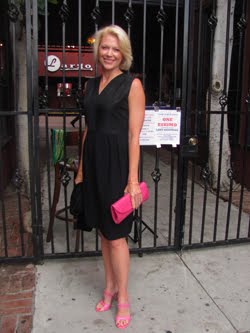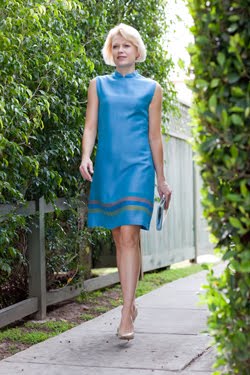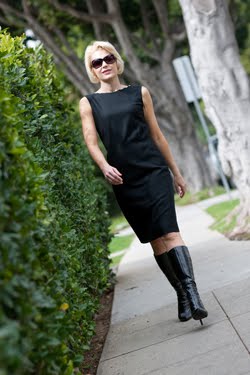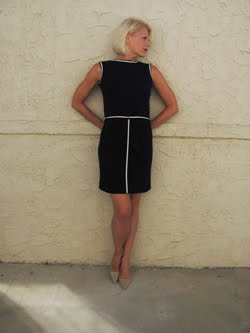In honor of Anita Ekberg's birthday today, I thought I would celebrate by sharing the style of
La Dolce Vita. Frederico Fellini's 1960 classic is one of my favorite movies of all time. It is one of three movies--
La Dolce Vita,
Manhattan, and
Rear Window--that really seemed to ignite my passionate love affair with classic cinema over two decades ago. It's easy to understand why
La Dolce Vita had such an impact...it's a truly gorgeous film. The black and white cinematography is perfection, the cast is pure glamour, and you really can't help but lose yourself in all that Italian style with iconic costumes by Piero Gherardi. Lots of inspiration for me and GlamAmor.
There is also a tremendous amount to be gained from its story, and I seem to get more and more out of it the older I get. The film starts light in tone to welcome you in, but gradually delves deeper and into darker aspects of our humanity. Marcello Mastroianni, an icon of Men's Style in this movie, plays a journalist looking for a story, but what we really see him searching for is meaning in his life. Unfortunately, he initially mistakes fame and fortune as the answers to his tough questions.
Marcello's search seems to begin and end with his women, particularly two. Through one he sees the drawbacks of fame, and through another he sees the excess and emptiness that can accompany too much wealth.
Fellini's female archetypes (clockwise from left)--
the Mistress, the Wife, the Innocent, and the Dream
The Dream, voluptuous Anita Ekberg who played the unattainable American actress Sylvia,
starting here with her iconic scene in Rome's Trevi Fountain
Happy birthday, Anita!
The Mistress, the sophisticated Anouk Aimee who played heiress Maddalena,
whose wealth is what really seduces Marcello
Did you know? Marcello's photographer, Paparazzo, is the inception of today's term "paparazzi."
In many respects, La Dolce Vita is a very modern film. After all, the lead character is essentially a tabloid journalist and that's all too familiar in our day and age. With news now becoming tabloid, 24/7 access to the internet, and everyone on reality TV, we see the trappings of celebrity and wealth every day along with those who succumb to it.
That said, the philosophy in this movie is as timeless as its style. Fame, money, power...these are all transitory in nature and, more often than not, quite empty. Rather, Fellini seems to assert that it's Love--the true love of another and the integrity that comes from knowing and loving oneself--that holds the answer to truly finding la dolce vita...the sweet life.
Bravo!






















































































































































